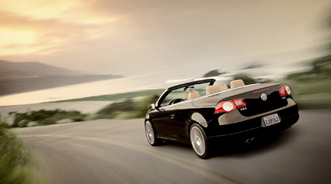Consumers Point to Online Listings as Key Driver to One Dealer Over Another

By subscribing, you agree to receive communications from Auto Remarketing and our partners in accordance with our Privacy Policy. We may share your information with select partners and sponsors who may contact you about their products and services. You may unsubscribe at any time.
PORTLAND, Ore. –
Consumers are buying and leasing based on need more than desire these days. Moreover, they also have become less loyal to specific dealers and brands, according to a recent study by Chrome Systems.
These were just some of the many findings of the 2010 Chrome Consumer Survey, a study conducted to track how consumers have changed their auto research and purchasing habits from 2009.
One of the areas the survey delved into was why consumers buy vehicles.
The study found that more than a quarter (26 percent) of respondents pointed to their old ride being unreliable or broken down as the impetus for their new purchase or lease. This reason was given more than any other.
Meanwhile, the proportion of consumers who bought or leased a model out of a desire for something new in the driveway dipped from 32 percent to 21 percent.
As far as why consumers gravitate toward particular dealers, there was a greater proportion of consumers this year who said it was due to specific online listings. In fact, 20 percent cited this reason compared to the 15 percent who said the same in 2009.
Subscribe to Auto Remarketing to stay informed and stay ahead.
By subscribing, you agree to receive communications from Auto Remarketing and our partners in accordance with our Privacy Policy. We may share your information with select partners and sponsors who may contact you about their products and services. You may unsubscribe at any time.
And it appears there has been a slide in dealer loyalty, too. A year ago, 37 percent of consumers said they were spurred to buy or lease from a particular store by the fact that either they or someone they knew had done so before.
This year, just 24 percent cited that reason.
A smaller slide can be found when it comes to brand loyalty. The percentage of consumers who bought from the same brand they did before fell from 39 percent to 35 percent.
Moving along, the study also indicated that a substantial percentage of consumers — 83 percent, in fact — claimed they would probably would do some Web browsing prior to choosing whether or not to buy or lease.
The shoppers who utilized OEM and dealer websites to do their research said that price and preferred equipment selection drove their purchase decision the most.
Next up, Chrome shared some of the “must-have features” that consumers listed.
Interestingly enough, vehicle price — which 74 percent said was critical — as well as body style and overall appearance/styling (59 percent), was more important to respondents than fuel economy.
Fifty-four percent said fuel economy was critical this year, compared to 60 percent who said the same last year. Obviously, the slowdown in gas prices could have played a big part in this.
Meanwhile, 68 percent of consumers cited body style and 59 percent found overall appearance/styling to be important.
“It is no surprise that the sluggish economy has changed consumers’ vehicle purchasing habits, and this survey highlights some of the critical shifts in sentiment,” shared Amit Maheshwari, general manager of DealerTrack Data Services. “The need for a strong online presence is greater than ever as price, availability and convenience can convert an online review of inventory into a relationship with a dealer.”
He added: “Building upon the results from last year’s survey, we are able to see marked shifts in consumer vehicle purchasing trends that will help trend-conscious auto retailers make decisions that drive traffic to their websites and stores. As consumers become more research-savvy, dealers should aggressively manage their inventory, stocking in-demand new and used vehicles and pricing them to sell quickly and profitably."


